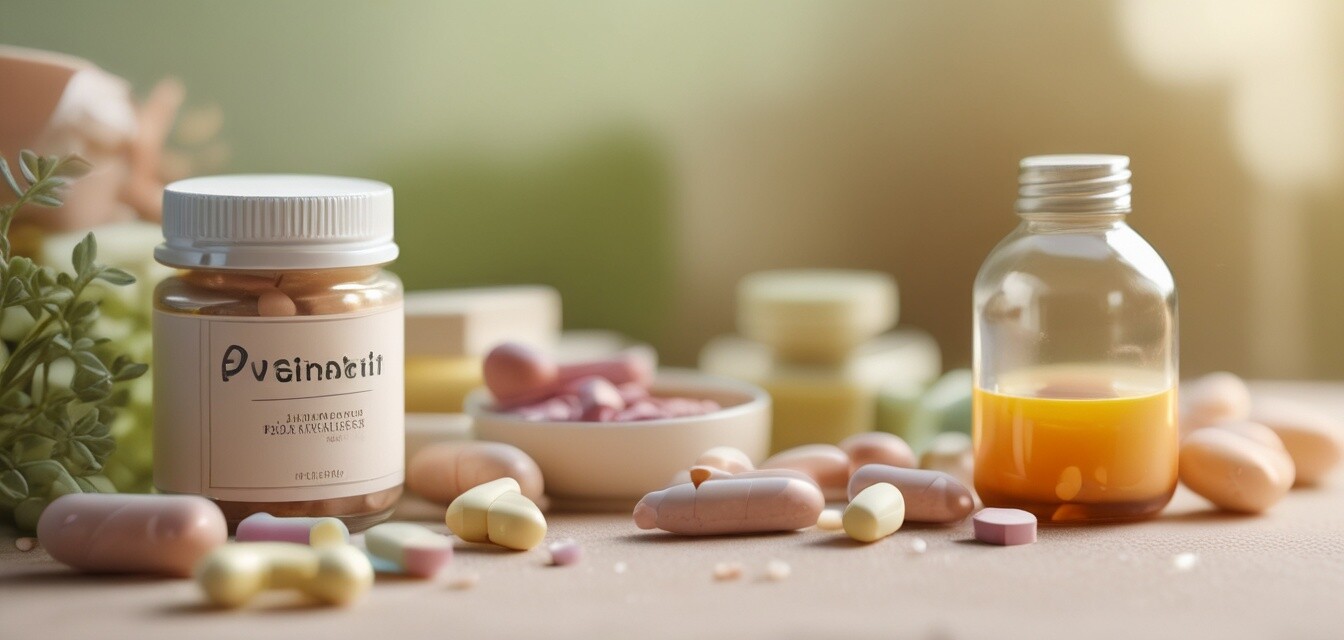
The role of prenatal vitamins in postpartum recovery
Key Takeaways
- Continuing prenatal vitamins can aid in postpartum recovery.
- Important nutrients for new mothers include iron, calcium, and DHA.
- Breastfeeding mothers may have increased nutritional needs.
- Consulting with a healthcare provider is essential for tailored advice.
The journey of motherhood doesn't end with childbirth. In fact, it's only just beginning. Understanding how crucial postnatal nutrition is can empower new mothers to recover effectively and provide the best for their newborns. One significant aspect of this recovery is the continuation of prenatal vitamins. Let’s dive deeper into how these vitamins play a vital role in post-delivery health and wellness.
Why continue with prenatal vitamins?
After childbirth, a woman's body undergoes significant changes. Continuing to take prenatal vitamins can help a new mother replenish essential nutrients lost during pregnancy and childbirth. Here are some reasons why it's beneficial:
- Enhanced recovery: Prenatal vitamins provide vital nutrients for healing.
- Support for breastfeeding: Nutrients are crucial for the production of quality breast milk.
- Fatigue reduction: Vitamins can help combat postnatal fatigue.
Essential nutrients in prenatal vitamins
Understanding what nutrients are in prenatal vitamins helps highlight their importance in the postpartum period. Here’s a table detailing some essential vitamins and their roles:
| Nutrient | Role |
|---|---|
| Iron | Supports red blood cell production and combats anemia. |
| Calcium | Important for bone health and helps with breastfeeding. |
| DHA | Supports brain health for the mother and baby. |
| Folic Acid | Aids in cell division and supports maternal health post-pregnancy. |
Supporting your postpartum journey
Navigating through postpartum recovery can be overwhelming. Here are some tips to ensure that you are supporting your body and your baby effectively:
Tips for new mothers in recovery
- Stay hydrated to support recovery and milk production.
- Incorporate a balanced diet rich in fruits, vegetables, and whole grains.
- Rest as much as possible; sleep or take short naps when your baby sleeps.
- Consult with healthcare professionals for tailored nutrition advice.
- Consider your lifestyle and incorporate any necessary vitamin adjustments as needed.
The importance of consulting healthcare providers
Every woman's postpartum experience is unique. Consultation with a healthcare provider is essential to ensure appropriate supplementation. They can help tailor vitamin intake according to individual health needs and breastfeeding goals. For more information on prenatal nutrition, check our detailed guide on buying prenatal vitamins.
Staying informed about prenatal trends
As the world of prenatal health continues to evolve, staying updated on new products and research is crucial. New findings may surface continuously regarding vitamins and their benefits during and after pregnancy. Delve into our latest articles in the News and Trends section to learn more about these developments.
Pros
- Supports recovery after childbirth.
- Benefits breastfeeding mothers by enhancing milk quality.
- Helps in addressing nutritional deficiencies.
Cons
- Not a substitute for a healthy diet.
- Possible side effects (e.g., nausea) for some mothers.
- Requires ongoing medical advice for safety and efficacy.
Conclusion
For new mothers, postpartum recovery is a critical period that deserves attention and care. Continuing prenatal vitamins can serve as a vital part of managing recovery, breastfeeding, and overall health. Always consult with your healthcare provider before making any significant dietary changes or continuing with supplements to ensure that your unique needs are met. Let's embrace this transformational time in life with the right nutritional support!
